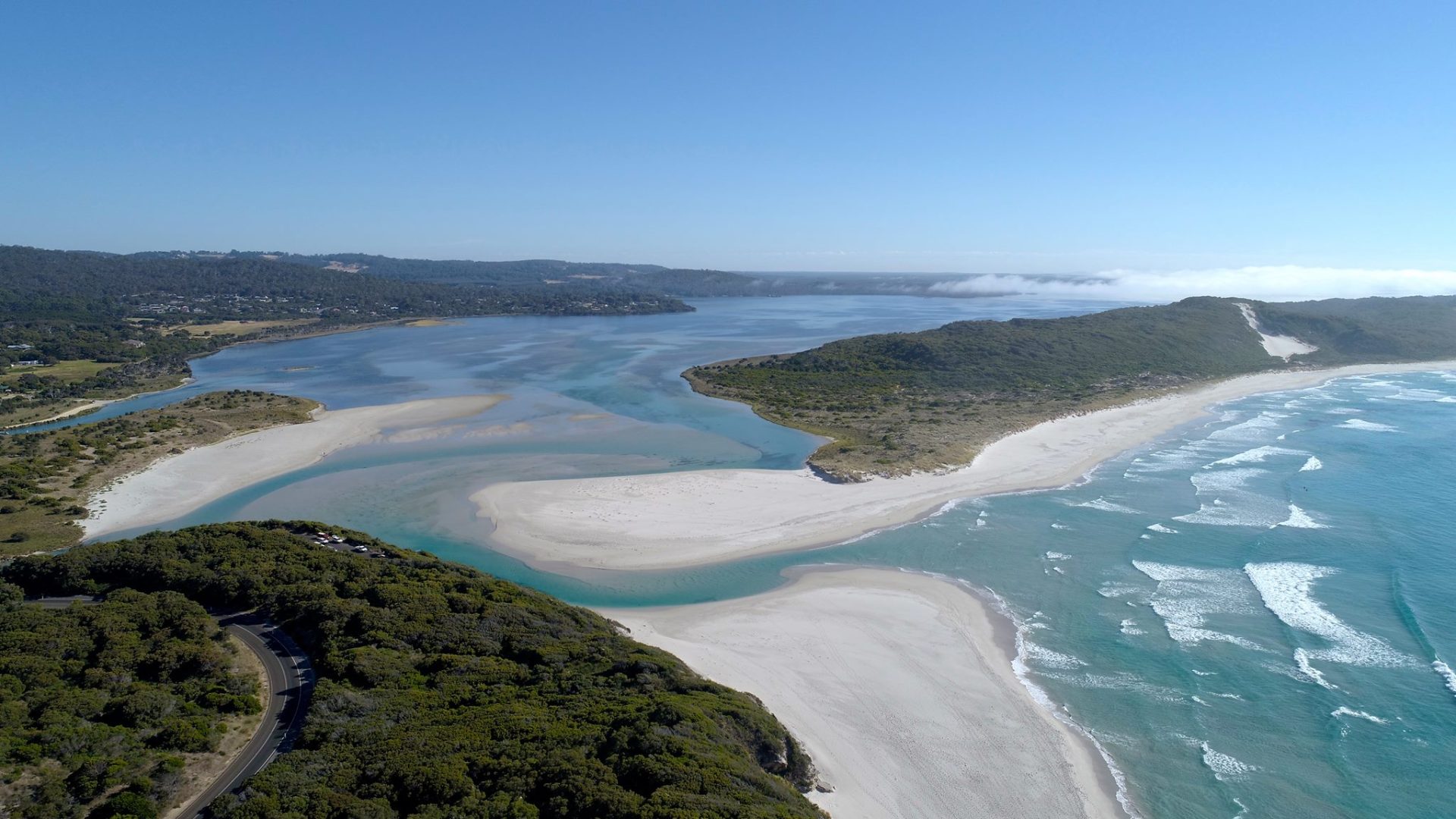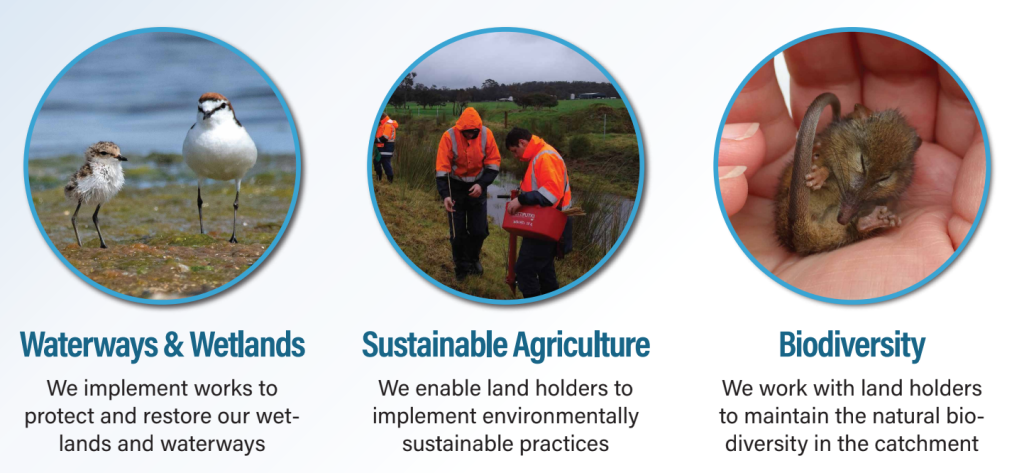
Wilson Inlet Catchment Committee
Enabling the community to minimise their environmental impact in the areas that affect our catchment.
About the Group
We are a not-for-profit community group that works in Nornalup, Mount Barker and Albany to support sustainable agriculture, biodiversity and waterway protection. We have a strong focus on shifting behavioural change through our communications using good social science principles.

You can find out more about us on our website.
Key Priorities for the Group
While our focus is broader than climate action, many of our programs have climate benefits including:
Biochar Feasibility Study
Waste to Net Zero – Feasibility study run by WICC in partnership with Murdoch University and the Shire of Denmark. We are aiming to determine if it is feasible to process all of the Shire’s green waste (800 tonne per annum), silage plastics and FOGO into commercially available biochar. The biochar retains approximately 60% of the C in the above feed stocks and could be used as a feed supplement improving rumen efficiency and reducing enteric methane production. We are currently looking to run this as a pilot in Denmark.
Revegetation
WICC carries out 5Ha – 8Ha of revegetation per annum on farms. While this is primarily for nutrient export mitigation and biodiversity, there is also an unmeasured / unreported, carbon sequestration benefit.
Waste to Profit
This is a potential program we have been working on with Murdoch University using microalgae to treat high nutrient waste streams, resulting in a commercially available algal biomass which can be used to make slow release fertiliser or aquaculture feed. This program also is primarily for nutrient stripping however would sequester carbon in the process.
Regenerative Agriculture
WICC is involved in a few programs to build the capacity of our farming sector to undertake regenerative agriculture. WICC runs two sustainable agriculture focussed grower groups which use facilitated discussion group methods to explore regenerative agriculture with topics such as rotational grazing, dung beetles, multi species pasture, soil biology, etc. All of which lead to improved soil carbon sequestration.
Dung Beetles
WICC has an ongoing dung beetle program looking to plug the spatial and temporal gaps in dung beetle distribution. We import, raise and distribute suitable beetles throughout our area of operations. While there is minimal empirical data demonstrating dung beetle benefits to soil carbon sequestration, there is definitely a link.
Get Involved
We regularly run training sessions and discussion forums. You can sign up for our newsletter or see the “whats on” section on our website to stay up to date.
At a glance

On this page
Tags
Get in Touch
Shaun Ossinger
info@wicc.org.au
0401 291 457
Quick Links